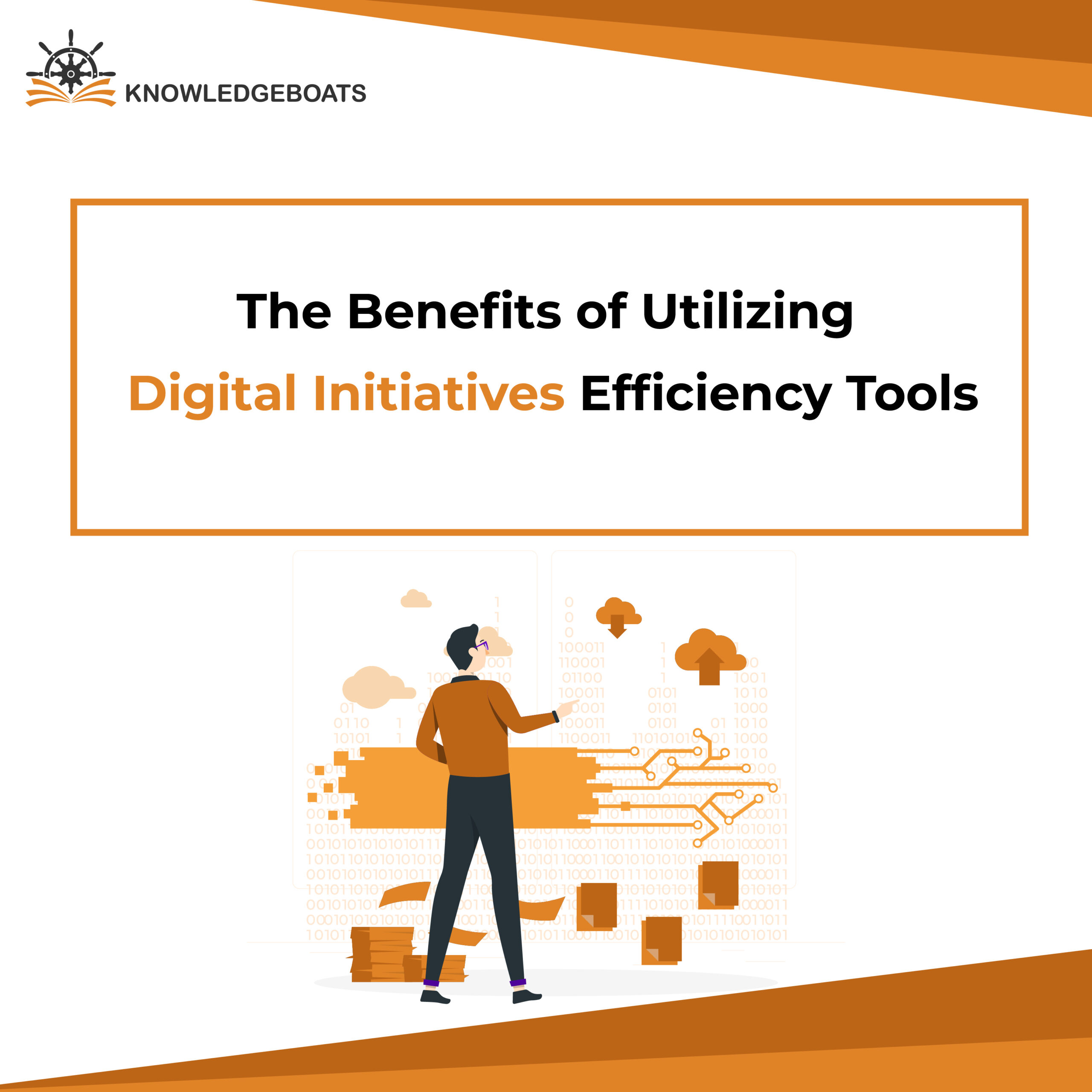
In today’s digital era, organizations across various industries increasingly adopt digital initiative efficiency tools to streamline operations, improve productivity, and enhance overall efficiency. These digital transformation tools leverage the power of technology and automation to optimize workflows, eliminate manual tasks, and drive operational excellence.
Digital initiative efficiency tools encompass various software applications, platforms, and technological solutions to address specific business needs. They empower organizations to automate repetitive processes, enhance collaboration, make data-driven decisions, and deliver superior customer experiences. Therefore, this blog will discover some significant benefits of digitalization tool and how it helps an organization succeed.
What are Digital Initiatives Efficiency Tools?
Digital Initiatives Efficiency Tools refer to various technological tools, software applications, and platforms organizations use to streamline operations, improve productivity, and enhance efficiency in various business processes. These organization tools leverage digital technologies and automation to optimize workflows, eliminate manual tasks, and enhance overall performance.
By embracing these tools, businesses can unlock their full potential and gain a competitive edge in an increasingly fast-paced and technology-driven world.
Benefits of Digital Initiatives Efficiency Tools
Utilizing digital efficiency tools can bring numerous benefits to organizations across various industries. Here are some key advantages of implementing digital initiatives efficiency tools:
Drives Data-Based Insights
One of the leading advantages of business tools is that your business will gather and evaluate data that turns into actionable and profit-generating insights. Digital initiatives and efficiency tools will allow taking driven business decisions, which promotes corporate decision–making.
Cost – Savings
The business tools will not save time by investing in automation but also save money. For instance, using digital tools will help reduce the operational cost associated with manual processes and disparate systems. Rather than depending on paper to track everything, which is expensive and confusing quickly, digitization allows teams to access everything they need on one system.
The digital initiative efficiency tools empower organizations to take better actions based on improved access to data. Because everything they require to evaluate performance is right in front of them, and the organization will make sure to invest in the right resources. It means it saves money on outdated tools or processes into profitable options.
Improved Productivity
Digital efficiency tools automate and streamline various tasks, reducing time and effort. This increases employee productivity, allowing them to focus on more value-added activities.
Enhanced Operational Efficiency
Digital initiative efficiency will allow businesses to improve operational efficiency. You will consolidate complicated manual processes and minimize overhead costs by connecting with the back office system, product updates, enables inter–device activation, automated delivery process and many more. The tools work to save time, plug revenue holes and reduce frustration.
Better Collaboration
For even sometime, remote work culture will stay, and it becomes crucial for organizations to have tools to collaborate and communicate effectively with each other. Digital efficiency tools also facilitate sharing of knowledge and learning, allow cross–functional communication, divide down silos and enable teams to work collectively across different departments. The digital transformation portals will provide a centralized location for all related information and best practices, enabling employees to access knowledge.
With tools like project management software, cloud-based document sharing, and video conferencing platforms, teams can collaborate more effectively, share real-time information, and make faster decisions.
Scalability and Flexibility
Digital tools often offer scalability, allowing businesses to adapt to changing demands and expand their operations without significant infrastructure investments. Cloud-based solutions, for example, provide the flexibility to scale up or down resources based on business needs, ensuring optimal performance and cost efficiency.
Competitive Advantage
By embracing digital efficiency tools, businesses can gain a competitive edge in the marketplace. Improved productivity, streamlined processes, and enhanced customer experience can differentiate a company from its competitors, attract new customers, and retain existing ones.
Improves Customer Satisfaction
The customer’s expectations are higher than ever. Customers want services tailored to their needs. They also want the process to be automated and wish to refrain from interacting with humans to perform tasks such as updating software, deactivating, and reactivating it. Digitalization is a clear advantage for businesses. You can implement robust strategies and tools like license modifications per location, industry, and automated processes. These digitalized processes directly lead to an increase in customer satisfaction.
Conclusion
Overall, digital efficiency tools enable organizations to optimize processes, improve productivity, and make data-driven decisions, enhancing operational efficiency and a competitive advantage in today’s fast-paced digital landscape. It’s essential to assess your business requirements, select the right tools, and ensure effective integration and adoption within your organization.



